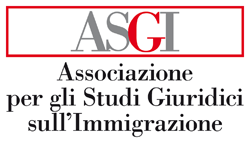Archivio saggi e commenti
Lo «spettro di un ingorgo di fronte a un flusso incontrollabile di domande di visti umanitari»: genesi, derive e approdi della giurisprudenza di merito
di Dario Belluccio
Abstract: Nel corso di pochissimi anni la giurisprudenza di merito italiana ha affrontato il tema del rilascio del visto di ingresso per motivi umanitari ai sensi dell’art. 25, par. 1, lett. a) Regolamento (CE) n. 810/2009 con approcci ed esiti molto diversificati. L’Autore opera una analitica ricostruzione di tale giurisprudenza dal 2019 alla fine del 2023, la cui ricchezza e pluralità di motivazioni deriva anche dal fervido confronto con decisioni delle Corti di Strasburgo e Lussemburgo. All’esito si pone il quesito se gli attuali arresti in materia e, in particolare, l’analisi della questione attinente alla responsabilità dello Stato sotto il prioritario profilo della sua “giurisdizione”, costituiscano l’esito di una rigorosa interpretazione giuridica piuttosto che la opportunità, da parte della magistratura, di operare un bilanciamento tra istanze di protezione individuali, da un lato, ed esigenze di politica migratoria, dall’altro. Assumendo così un ruolo di velata supplenza alla carente regolamentazione legislativa della materia.
Abstract: During the last few years, the Italian judicial decisions have dealt with the subject of the release of visas for humanitarian reasons, according to article 25, par 1 lett. a), Reg. (EC) n. 810/2009, with very diversified approaches. The Author carries out an analytical reconstruction of the relevant cases from 2019 to the end of 2023, whose richness and variety of motivations also descends from the fervent confrontation with decisions of the Courts of Strasbourg and Luxemburg. As a result, the question arises whether the current arrests on the matter and, in particular, the analysis of the issue relating to the responsibility of the State under the fundamental profile of its "jurisdiction", represent the outcome of a rigorous legal interpretation, rather than an opportunity for the judiciary to strike a balance between the needs of individual protection, on the one hand, and those of the migration policy, on the other. Assuming, by this way, a role of veiled substitution of the lacking legislative regulation of the matter.
Cerca nel sito
Rubrica di Questione Giustizia & Diritto, Immigrazione e Cittadinanza
Fascicoli
Per gli Autori
Link esterni
Newsletter
Sito realizzato con il contributo della Fondazione "Carlo Maria Verardi"




